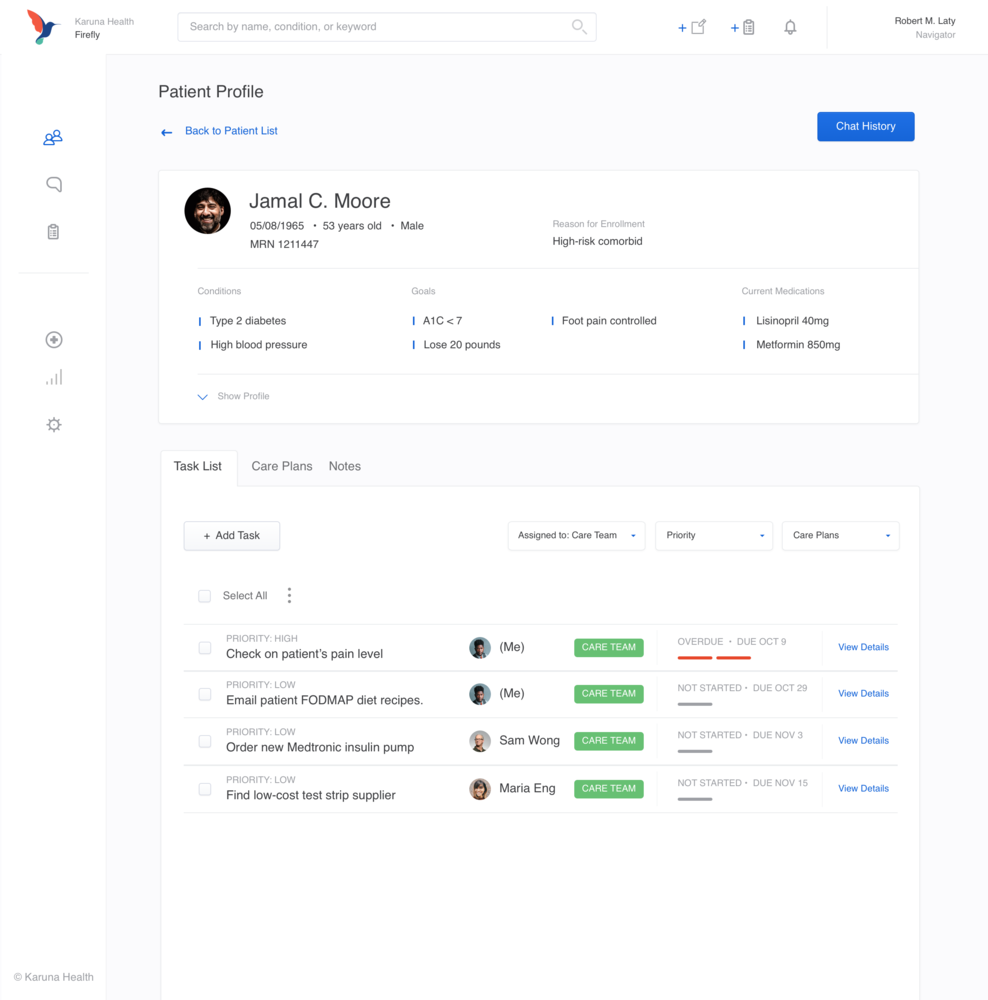Using Tech to Make Health Care More Personal
-
-
Slice of MIT
Filed Under
Recommended

For patients with chronic diseases, the demands of navigating care plans, doctor’s visits, and prescriptions can be daunting and in extreme cases, simply unmanageable. For these patients, care coordinators—professionals who answer questions, arrange transportation to appointments, and remind patients to take their medication—have been shown to improve care outcomes.
But these one-to-one relationships are challenging to scale, resulting in high-touch care to be offered only to the patients most in need. Yasyf Mohamedali ’17, MEng ’18 wants to change that. That’s why he cofounded Karuna Health, a tech startup that enables care coordinators to provide personalized help and guidance to more patients.
“The most valuable part of a care coordinator’s role is the empathy,” Mohamedali explains, but he says “paper work and regulations make it difficult for coordinators to help many patients.” Karuna Health’s software platform addresses this challenge by providing care coordinators the tools to communicate with patients in the medium they are most familiar, like SMS, Facebook, or WhatsApp while offering automation tools for recurrent care-related tasks, like documentation, to allow coordinators more time for in-person visits with patients.
Karuna Health’s software also provides workflow solutions, ordering visits based on patient locations and care needs. “We want to build the tools and software to make [care coordinators] jobs easier, so they just have to worry about being clinical, empathetic humans and not the workflow or clinical aspects,” says Mohamedali.

Karuna Health isn’t Mohamedali’s first startup; he launched his first company reselling web domains while still in high school. But he believes he’s found his calling in health care. “I want to maximize the number of people I can point to and say, ‘I have tangibly had an impact on this person's life,’” he says. “If you want to do that, it’s hard to think of a better industry.”
Mohamedali has another reason close to home for wanting to fulfill his mission: Karuna Health’s cofounder Joe Kahn suffers from an undiagnosed chronic illness. The founders met as part of Dorm Room Fund, a program that support student entrepreneurs. Mohamedali, who grew up in a family of doctors, says that learning of Kahn’s struggle to find a diagnosis and the right care plan was eye opening. “Whenever I got sick, I just called a doctor in my family—I never worried about being a patient,” Mohamedali says. “I want people like Joe to have that kind of relationship with their care.”
With help from Karuna Health, care coordinators will be able to work with more patients, like Kahn, who need guidance, but whose conditions don’t currently don’t qualify for a coordinator.
Karuna Health recently launched its first pilot program, working with primary care providers in support of their care coordinators colleagues who act as the “first line of defense” for all patients, using the software to answer questions and help with requests. Mohamedali hopes that in the future Karuna Health will help facilitate relationships across all levels of care, from hospitals to small providers.
Thanks to MIT, he says he’s not daunted by the work ahead. “In health care, people talk about how broken or insane it is,” he says. “But MIT taught me that I should approach problems as a thing to be solved, rather than a thing to be scared of.”







